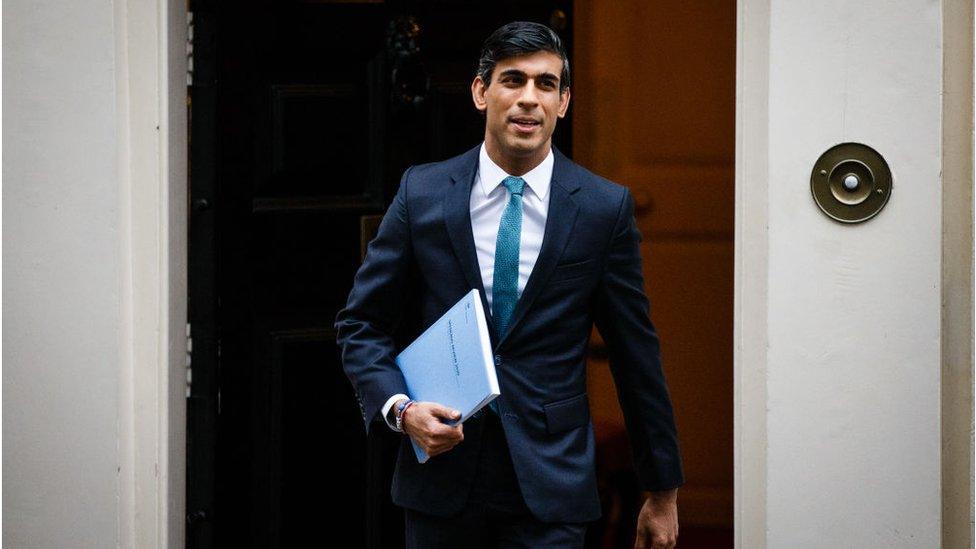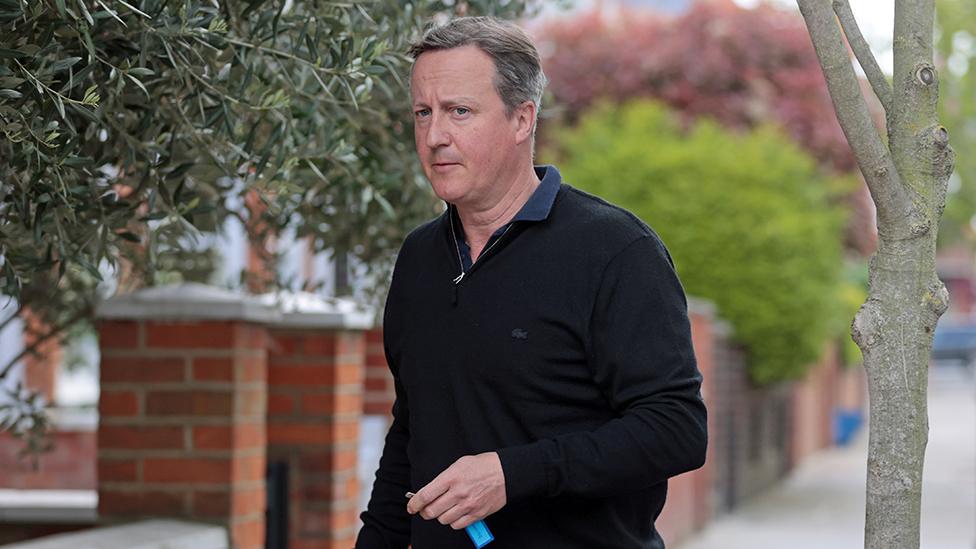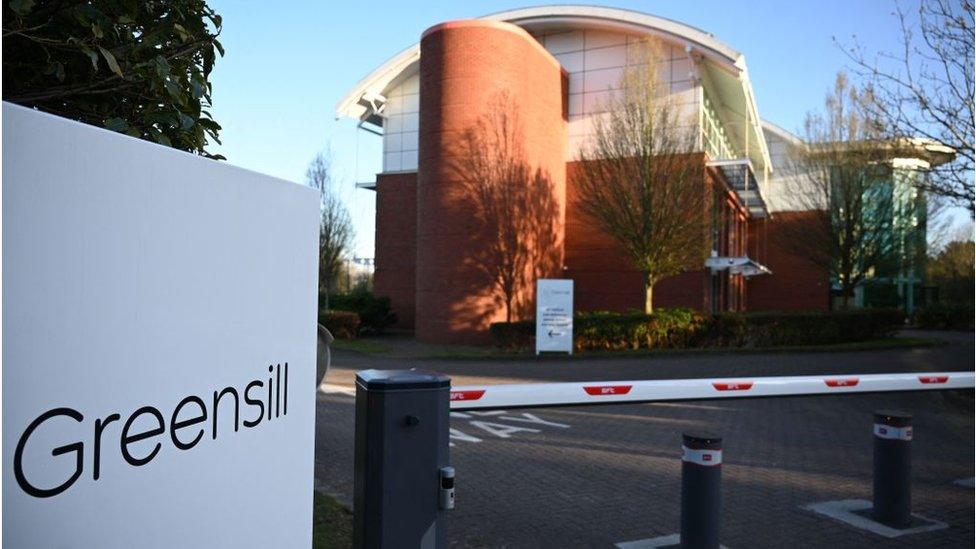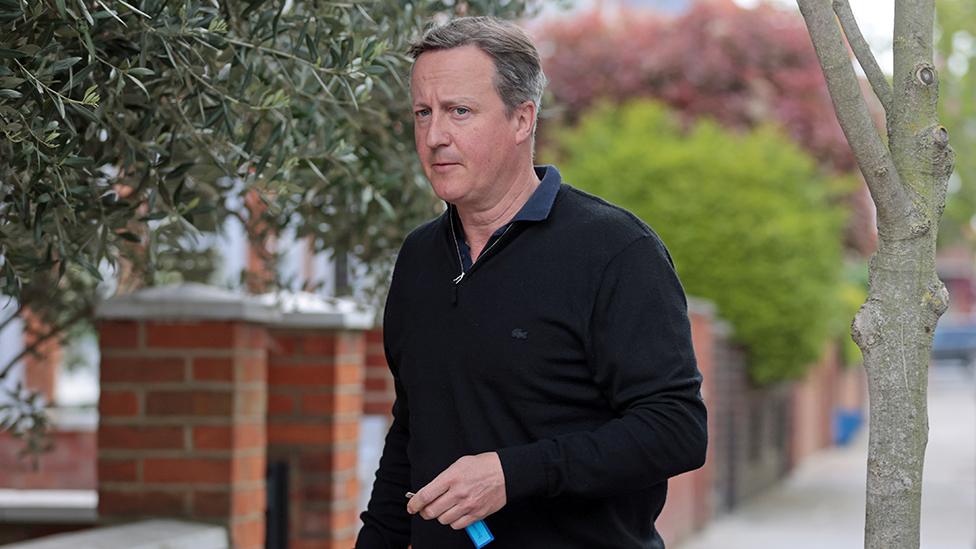Greensill did not get special treatment, says Sunak
- Published

Chancellor Rishi Sunak has said he would not have done anything differently in his approach to Greensill Capital amid questions over the firm's lobbying.
He added that intensive lobbying by David Cameron did not mean the finance firm got special treatment.
Speaking to MPs on the Treasury Select Committee, Mr Sunak said he had looked at issue "on the merits of it".
But Labour MP Siobhain McDonagh said she found that hard to believe.
Last year, former Prime Minister David Cameron tried to convince the Treasury to let Greensill join an emergency Covid lending scheme, sending multiple texts, WhatsApp messages and emails to senior ministers, as well as having numerous calls and meetings.
Greensill was rebuffed by the Treasury and has since gone bust. But the government has faced scrutiny over Mr Cameron's level of access.
'Entirely right'
On Thursday, Mr Sunak told MPs the distressed firm was not given extra attention and its approach underwent proper due diligence.
"I think it was entirely right that we considered these proposals on their merits given the context at the time and I stand by the decisions that we made not to take the proposals forward," he said.

The level of David Cameron's access to ministers has been questioned
He added: "It is important for the policymaking process that people feel they can engage with ministers and officials, policy is better as a result of that. And often informal conversations as part of that process or people providing private perspectives on things help with the policymaking process."
Asked if he thought that there were any lessons for the Treasury, or if he would do things differently in future, Mr Sunak said: "No, I don't, as I said, I stand very firmly behind the approach we took."
'Doesn't seem credible'
Some MPs were unconvinced.
Addressing Mr Sunak, Ms McDonagh said: "25 texts, 12 WhatsApps, 8 emails, 11 calls and 9 meetings with senior ministers and officials. Can you name me another company that got that amount of access at the height of the crisis?"
Mel Stride, the committee's Conservative chair, told Mr Sunak that claims he was not swayed by Mr Cameron were not credible.
"It just doesn't seem credible if it was a former prime minister pushing something as vigorously as he did, at the very highest level," Mr Stride said.
Mr Sunak's defence of the Treasury's actions came after the department's top two officials appeared in front of the same committee earlier on Thursday.
Charles Roxburgh, second permanent secretary to the Treasury, said that he had been aware of allegations about problems at Greensill, which collapsed in March, but defended his nine meetings with its representatives.
"There were reputation issues around Greensill... but we have to talk to companies even if they have bad press," he said.
'Appropriate'
Mr Sunak said firm's failure would cost the government around £8m in direct costs, including taxes that Greensill owed, and possibly as much as £400m in other indirect costs.
However, former City minister Lord Myners has said the collapse of the finance firm could cost taxpayers £5bn.
Last week, Mr Cameron told the Treasury Committee he had not broken any rules when he tried to influence ministers and officials on behalf of Greensill Capital.
He said it had been "appropriate" for him to call and text ministers and officials directly, as financial schemes were being designed quickly at a "time of extraordinary crisis".
But he conceded that in future "prime ministers should only ever use letter or email, and should restrict themselves far more".
- Published11 May 2021

- Published9 August 2021
